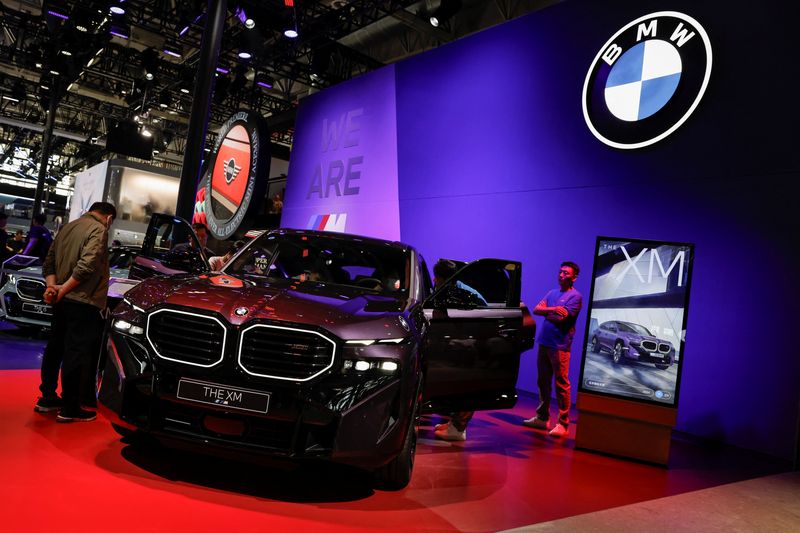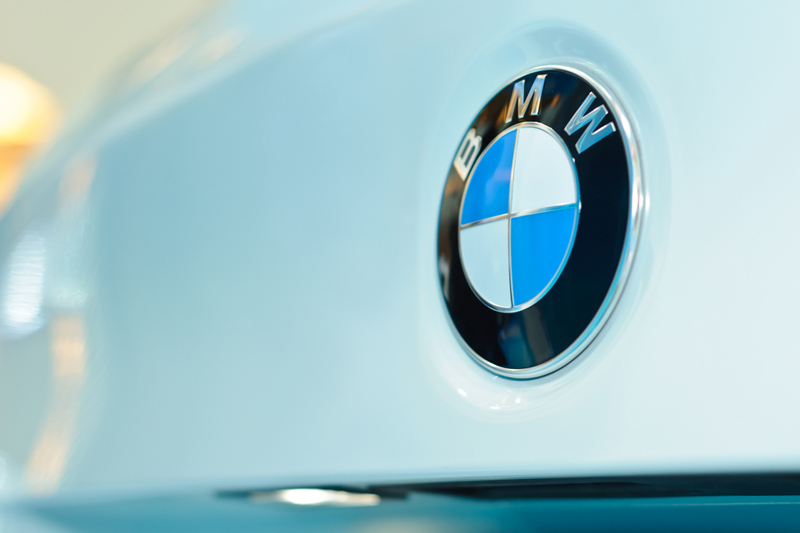By Nick Carey and Christoph Steitz
LONDON/FRANKFURT (Reuters) – BMW reported a 61% drop in third-quarter profit on Wednesday, missing analysts’ expectations due to slumping Chinese sales and braking problems, sending its shares to their lowest level in more than two-and-a-half years dropped .
Shares of the premium carmaker and its German rivals Volkswagen (ETR:), Mercedes-Benz (OTC:) and Porsche all fell 3%-5%, with traders citing a potential victory in the US presidential election for Donald Trump, who broad tariffs on imports.
Juergen Molnar, investment strategist at brokerage RoboMarkets, said that while BMW (ETR:) mainly blamed a weak Chinese company for the quarterly profit decline, “the punitive tariffs threatened by Trump are likely to become another negative factor on the already long list of car companies. manufacturers”.
BMW CEO Oliver Zipse tried to allay such concerns, saying that the US market would remain crucial no matter which government was in charge, and that potential US tariffs could simply lead to BMW selling more cars locally .
“We shouldn’t be too nervous about what could happen,” Zipse told reporters, pointing to BMW’s “very, very large footprint” in the United States, but also continued weakness in China.
BMW operates the group’s largest factory in Spartanburg, South Carolina, and Zipse said the company’s nationwide footprint also included 30 locations in 12 US states.
BMW lowered its expectations for this year in September due to sluggish Chinese demand and problems with a Continental braking system.
In October, the German carmaker reported that its third-quarter sales in China fell by a third.
Rival German carmakers Volkswagen and Mercedes-Benz are also struggling with declining sales in China, caused by a weak economy and fierce competition.
BMW said in September that the brake problem affected more than 1.5 million cars, with delivery delays expected for about 320,000 vehicles.
The company said Wednesday it will hand over the delayed vehicles to customers in the fourth quarter.
BMW reported operating profit of 1.7 billion euros ($1.82 billion) for the third quarter, down from 4.352 billion euros in the same quarter last year and below analyst expectations of 1.8 billion euros.
The carmaker’s turnover fell 15.7% to 32.4 billion euros from a year earlier, below analysts’ expectations of 34.3 billion euros.
The company said it is still on track for an operating profit margin of between 6% and 7% in 2024. In the third quarter, BMW’s operating profit margin for its auto segment was just 2.3%.
BMW Chief Financial Officer Walter Mertl said in a statement that BMW Group remains on track to achieve its car-free cash flow target for 2024 “with strict management”.

“In the fourth quarter, consecutively higher shipments and a stronger product mix will support our bottom line.”
($1 = 0.9179 euros)


